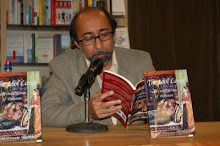A historian’s focus is on facts extracted from primary or secondary sources offering a counter-narrative. For example, in the US ‘the no taxation without representation’ narrative persists. Some historians have however argued that the fear of losing slaves caused the revolution. There were slave rebellions. Then King George III issued the Royal Proclamation of 1763, forbidding white settlers from usurping more land from the natives.
Historian Gerald Horne argues that the revolution was, in fact, a counter-revolution spelling disaster for African Americans and Native Americans. When novelists enter the fray, they draw a narrative arc with ordinary humans at the centre. Altaf Fatima’s novel Chalta Mussafir was written about a decade after Pakistan army’s unconditional surrender in Dhaka.
Except for the weak ending, I loved her book Daskat Na Do (The One Who Did Not Knock, translated finely by Rukhsana Ahmed) for its diction and for situating two outsiders at the heart of the story. One would think that a decade was a long enough time to gain perspective about an emotionally charged moment in history, and weigh official and unofficial narrative and counter-narratives to offer an undidactic lens. An equal number of Hindus and Muslims don't have to die and en equal number of perpetrators of violence should not should not also be lined up. Since no one has a complete grip on the truth, the author must look far and wide.
Read the rest Here


No comments:
Post a Comment